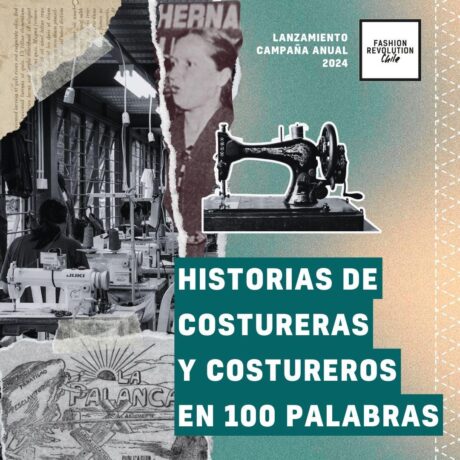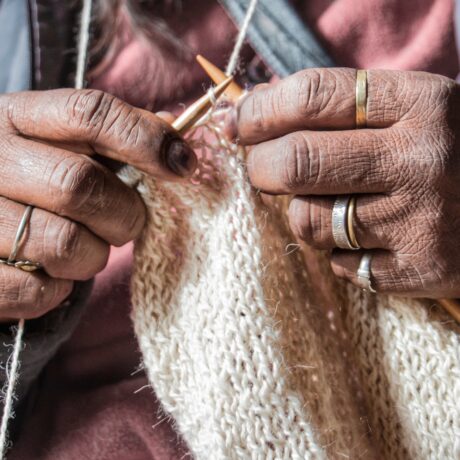Meet Your Maker – Maaza and Bekabil from Sancho’s Dress
Debra Mark’os is a northern town in Ethiopia, and its beautiful land is filled with skilled artisans. It is well-known that its harder to find work in the countryside than it is in the bustling capital, Addis Ababa. As such, many will take the risk of travelling to Addis, often ending up homeless and begging. The job market in Debra Mark’os is highly competitive, and often, people will sell things – meaning they live on marginal profits due to bargaining.
However, skill-dependent jobs such as weaving can create solid job opportunities, allowing individuals to support themselves, their families and communities. Unfortunately, the weaving industry is heavily male-dominated. Women, who are already at a great disadvantage due to traditional familial pressures and lesser education, have very limited access to this sort of stable work. However, trade-advocates Sancho’s Dress hope to support women in Debra Mark’os by employing male shamanis (‘weaver’ in the local language) to train women on the hand-looms.
How does the hand-loom work? The shamani will sit behind the loom, and set his feet onto the pedals. To prepare the loom, the shamani stretches strings of cotton between two horizontal wooden poles. Then, he moves the shuttle through the material’s weft, pressing the pedals at the same time, which moves the garment forward. This ancient technology runs without electricity or complex infrastructure, making it highly appropriate in an area where power-cuts are common. The looms used to produce scarves for Sancho’s Dress are in fact made of locally-sourced bamboo and eucalyptus tree, meaning that they are easy to repair in the case of damage.
One of these Debra Mark’os shamanis is a man called Bekabil, who currently works from a small room on his land to create traditional garments. Very different to the houses in Addis, Bekabil’s home is made of wood that’s been covered in a mix of mud and grass – natural materials of the surrounding countryside. Some homes in Debra Mark’os have electricity, others don’t, and the aforementioned power-cuts may happen up to five times a week. Luckily for Bekabil, his hand-loom doesn’t require any electricity.
![Sancho's Dress 1 [Bekabil]](https://www.fashionrevolution.org/wp-content/uploads/2015/04/Sanchos-Dress-1-Bekabil-700x467.jpg)
Bekabil – who has three children – is hoping to work with Sancho’s Dress to train local women in his area to become skilled weavers, allowing him to support his own family in return. He is a amorous man who says that he is excited by the challenge of training others on a skill he learnt as a child.
The first of the women who Bekabil hopes to train is named Maaza, who lives in the same town with her family. A widow and mother of five, Maaza grew up in eastern Ethiopia. There, she learned to crotchet, and soon, her interested in clothes-making grew. Coming from a family who was separated during the Ethiopian civil war, Maaza is unique in her ability to persevere against challenges.
Over the past six years, she has learnt to sew on a pedal-powered sewing machine, creating and repairing the clothes of her neighbours. In that time, she’s also sadly seen the market for her specific skill set decline. Now, Maaza would love to learn how to weave, and even manage a weaving workshop, in order to support herself, her family, and to create beautiful garments that maintain the cultural heritage of her people.
Maaza hopes to bring other garments into production, including dresses, and for the upcoming winter, Ethiopian tartan. Through the success of the campaign and the work-shop, Maaza and Bekabil will be able to look after their respective children, which in Maaza’s case, includes putting her daughter through school.
“It’s a life-changing opportunity,” Maaza said, “We’ve prepared all the equipment, and we’ll be ready to start in three weeks’ time, which is great because for a long time now, we’ve been looking for a talented weaver, and now we’ve found one.”







